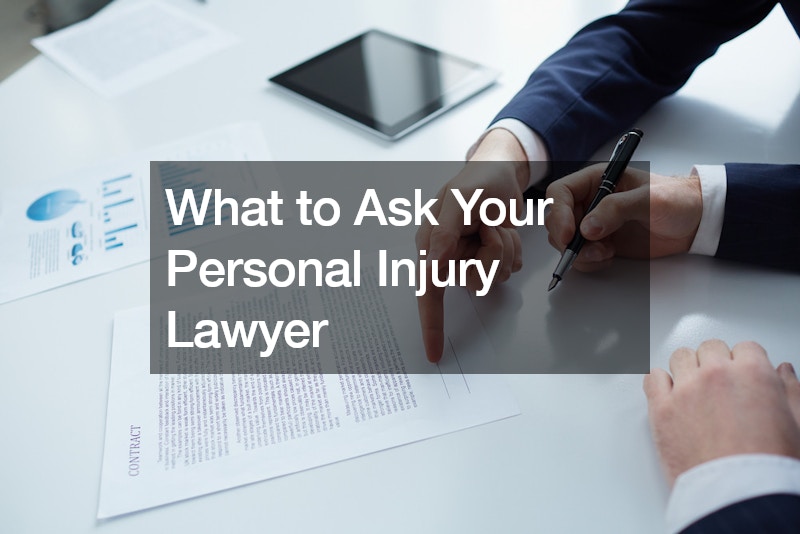

When dealing with the aftermath of an accident or injury, hiring a personal injury lawyer can be a crucial step in securing the compensation you deserve. However, selecting the right lawyer requires asking the right questions to ensure they are experienced, trustworthy, and a good fit for your case. Here are some essential questions to ask your Allentown personal injury lawyer.
What Is Your Experience with Personal Injury Cases?
Understanding your lawyer’s experience is fundamental.
Ask how long they have been practicing personal injury law and how many cases similar to yours they have handled. Experience in specific types of personal injury cases, such as car accidents, slip and falls, or medical malpractice, can be particularly beneficial. An experienced lawyer will be familiar with the nuances of personal injury law and better equipped to navigate your case.
What Is Your Success Rate?
In addition to experience, inquire about the lawyer’s success rate. Knowing the percentage of cases they have won or settled favorably can give you confidence in their ability to handle your case. A high success rate indicates that the lawyer is effective in negotiating settlements and presenting cases in court.
What Is Your Approach to Handling Cases?
Different lawyers have different approaches to handling cases. Ask about their strategy for managing your case, including how they plan to gather evidence, approach negotiations, and whether they are willing to go to trial if necessary. Understanding their approach helps you gauge their commitment and whether their strategy aligns with your expectations.
Who Will Be Handling My Case?
In some law firms, the lawyer you initially meet may not be the one handling your case. Ask who will be directly responsible for your case and how involved they will be. It’s important to know if your case will be handed off to a junior attorney or paralegal and to ensure you are comfortable with the level of expertise and attention your case will receive.
How Will You Communicate with Me?
Effective communication is crucial in legal proceedings. Ask about the lawyer’s preferred method of communication, how often you can expect updates, and their availability for meetings or calls. Clear communication ensures you are informed about the progress of your case and can address any concerns promptly.
What Are the Potential Outcomes of My Case?
Understanding the potential outcomes of your case helps set realistic expectations. Ask the lawyer to explain the best and worst-case scenarios, the likelihood of each outcome, and the factors that might influence the case’s resolution. This discussion can provide insight into the lawyer’s assessment of your case’s strengths and weaknesses.
What Is Your Fee Structure?
Discussing the fee structure upfront is essential to avoid any surprises later. Personal injury lawyers typically work on a contingency fee basis, meaning they only get paid if you win your case. Ask about the percentage they will take from your settlement or award, any additional costs (such as court fees or expert witness fees), and how expenses will be handled if you do not win your case.
What Do You Need from Me?
Understanding your role in the case is important for its success. Ask the lawyer what information and documents they will need from you, how you can help with the investigation, and what you should or should not do during the case. Your cooperation and prompt response to requests can significantly impact the outcome of your case.
How Long Will My Case Take?
While it can be challenging to predict exact timelines, ask for an estimated duration of your case. Understanding the typical timeframe for cases similar to yours helps you plan accordingly and manage your expectations regarding the settlement or trial process.
What Are the Chances of Going to Trial?
While many personal injury cases are settled out of court, some do go to trial. Ask your lawyer about the likelihood of your case going to trial and their experience in litigating cases in court. Understanding this possibility can help you prepare mentally and financially for the process.
Can You Provide References or Testimonials?
References and testimonials from previous clients can provide valuable insight into the lawyer’s competence and client satisfaction. Ask for references or look for testimonials online to gauge the experiences of other clients who have worked with the lawyer.

